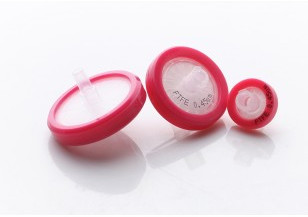PTFE or Polytetrafluoroethylene filters can largely help in the filtration of gaseous and organic solvents. They are resistant to many solvents. Here is everything that you ought to know about these filters.
The syringe filters have wide applications in the field of scientific filtration. In a laboratory application, it helps in removing the contaminants from a liquid. The PTFE or Polytetrafluoroethylene membrane has compatibility with a wide range of organic and gaseous solvents and solutions. These filters are known for their high porosity and better flow rates. You can use them for sterile filtration, clarification of corrosive solutions, sample preparation, and filtration of HPLC solvents. You can also use these filters for food analysis, routine QC analysis, environmental sampling, and content uniformity. Mostly, these filters are preferred for their versatility. They are available as both hydrophobic and hydrophilic types. When looking to buy these membranes, here are the things to be considered:
 Check the Efficiency:
Check the Efficiency:
You should check the efficiency of the filters before buying them. In this respect, it is important to check the flow rate for the type of solution you are intended to use. It will result in fine filtration and ensure a particulate-free sample. A superior quality PTFE syringe filter can improve the life of your apparatus and reduce the costs of analysis from the long-term perspective.
Check The Risk Factors:
For a flawless filtration process, it is important to analyze the risks involved in using the new variables. Here, you should access the factors like contamination in the samples caused due to a lack of cleanliness in the filter. Also, check if there are any ruptures that may allow passage of unfiltered materials through the membrane. You should also analyze the risk of back pressure that can cause spasm in your hands and cracks in the filter. It is advisable to use pre-filters for mitigating all these risks.
Check The Type Of Solvent:
When looking for a PTFE syringe filter, you should ascertain the type of solvent to be used in the process. It is crucial to maintaining accuracy. The solvents should be compatible with the membrane material to avoid chemical reactions and other unforeseen events that may hamper the accuracy of process.
Check The Filter Specifications:
Every type of filter membrane has unique specifications to serve different purification needs. The PTFE filters should be chosen according to the specific requirements of your procedure. Preferably, buy a filter with Polypropylene PP housing. Also, check the type of connectors used in the filters. There should be a Male Slip Leur for the outlet and Female Leur Lock for the inlet. The diameter and pore size of the filter depend on the volume of sample to be filtered. Here you should also decide whether you need a sterile or non-sterile filter. For effectiveness of filter, you should also evaluate the temperature and pressure ratings along with fluid volume and hold-up volume.
Check The Filter Quality:
It primarily depends on the amount of research conducted by a company in manufacturing of filters. It can be ascertained with the help of certifications held by the manufacturer. Also, check the pricing. It should be competitive.
When buying these filters for your lab applications, you should consider all these points.


